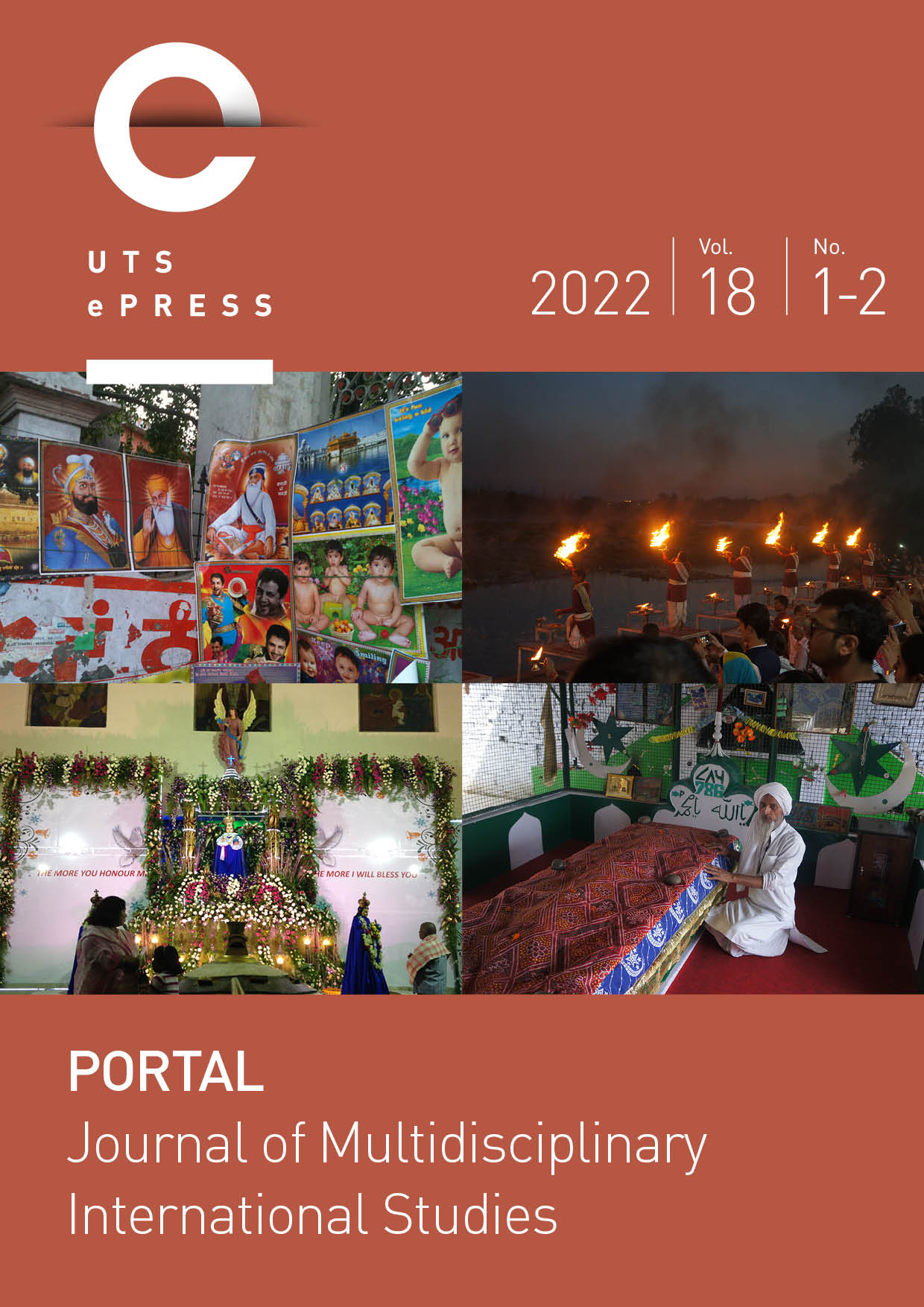Through the Looking Glass: The Involuntary Cosmopolitanism of Black Magic and Possession in Modi’s New India
Main Article Content
Abstract
In spite of Modi’s promise of good days (acche din) in 2014, many Indians still struggle with unemployment, low income, poor health and other difficulties. Though some problems eventually find solutions and middle-class metropolitans increasingly seek help from gurus and psychologists, long-term misfortune and disturbances are still frequently attributed to black magic or possession. Drawing on anthropological fieldwork in Kanpur and Bareilly, this article examines the unintended cosmopolitan effects of such practices, which occasionally unfold in ways that traverse and unsettle official religious boundaries, even in polarized times. Heuristically contrasting Modi to Alice in Wonderland, the article spells out the double bind of many low-income Hindus who seek supernatural assistance in times of crisis: should they follow the logic of inexpensive efficacy, even if necessitating engagement with unfamiliar ritual worlds in heterotopic spaces associated with the religious other? Or should they rather follow the emergent Hindu nationalist logic of Hindu exclusivism, according to which ritual remedies beyond a Hindu ritual repertoire would be inappropriate? The persisting prevalence of the former logic under Modi is illustrated with three cases, two of which are interrelated. Firstly, we meet a female professional seeking help against suspected black magic from a rustic Sufi-Muslim healer. Secondly, we meet a Kali devotee seeking help against spirits that disturbed his career and marriage in a renowned Sufi-Muslim dargah. The final case shows how familial neglect, economic hardship and an interreligious marriage conducted two generations earlier came together in a case of possession. The cosmopolitan effects of such instances, the article argues, lie in their tendency to form an anti-structural, heterotopic counterweight to aggressive Hindu nationalism.
counterweight to aggressive Hindu nationalism.
Article Details
Section
For submissions from 31st March 2014 onwards, authors who submit articles to this journal for publication agree to the following terms:
a) Retaining Copyright and Granting Rights:
Authors retain copyright and grant the journal the right of first publication. The work is simultaneously licensed under a Creative Commons Attribution License, allowing others to share and adapt the work. Acknowledgment of the work's authorship and initial publication in this journal is required.
b) Non-Exclusive Distribution:
Authors may enter into separate, additional contractual arrangements for the non-exclusive distribution of the journal's published version of the work (e.g., posting to an institutional repository or publishing in a book). Acknowledgment of its initial publication in this journal is required.
c) Online Posting and Citation Advantage:
Authors are encouraged to post their work online (e.g., in institutional repositories or on their website) prior to and during the submission process. This may lead to productive exchanges and earlier and greater citation of the published work (See The Open Access Citation Advantage Service). If authors include the work in an institutional repository or on their website, they must acknowledge the UTS ePRESS publication with relevant details.
d) Creative Commons Attribution (CC-BY) License Awareness:
Authors should note that the CC-BY License permits readers to share (copy and redistribute) and adapt (remix, transform, build upon) the work for any purpose, including commercial use. Proper credit, a link to the license, and indication of any changes made must be provided. The manner of doing so must not suggest endorsement by you or your publisher.
For Volume 10 No 2 (2013) and earlier, the following copyright applied:
Authors submitting a paper to UTSePress publications agree to assign a limited license to UTSePress if and when the manuscript is accepted for publication. This license allows UTSePress to publish the manuscript in a specific issue.
Articles published by UTSePress are protected by copyright, with rights retained by the authors, who assert their moral rights. Authors control translation and reproduction rights to their works published by UTSePress. All rights are reserved worldwide by UTSePress, and downloads of specific portions are permitted for personal use only, not commercial use or resale.
For reprint or usage permissions, please direct inquiries to UTSePress via the journal's main editor, Dr. Nicholas Manganas at [portal.scholarly.journal@gmail.com]. Reprint permission requires acknowledgment of both UTSePress and PORTAL in the format advised by the journal editor.
